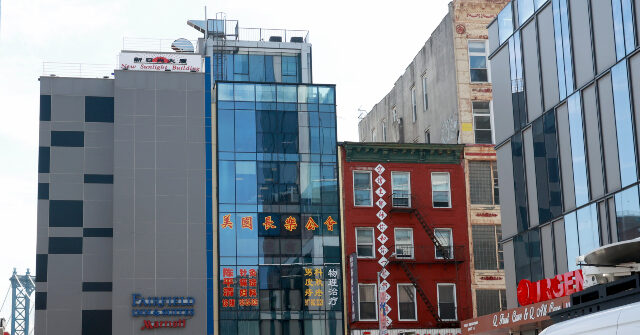In April 2023, two men, Chen Jinping and “Harry” Lu Jiangwang, were arrested in connection with an illegal Chinese police station in New York City meant to target anti-communists. Charges against them included conspiracy to act as agents of the Chinese government and obstruction of justice. Chen pleaded guilty to the conspiracy charge, which could result in up to five years in prison, while Lu has maintained his not guilty plea despite the serious nature of the charges. The accusations arose from their alleged activities on behalf of the Chinese Communist Party (CCP) to intimidate and surveil dissidents living abroad, effectively utilizing the police station as a transnational tool of repression.
The issue of China’s covert operations came to light following a report by human rights organization Safeguard Defenders in September 2022, which detailed China’s establishment of unregistered police stations in various countries under the guise of “service centers.” Initially, these centers were claimed to assist Chinese citizens with administrative services; however, they were later found to be involved in tracking down and harassing political dissidents, in some cases forcing them to return to China. Numerous countries, including the United States, were not informed about these operations, raising questions about China’s covert law enforcement strategies on international turf.
United States Attorney for the Eastern District of New York, Breon Peace, characterized the activities conducted from the illegal police station as an attempt at “transnational repression” targeting critics of the Chinese regime. Peace asserted that the operations were designed to silence dissenting voices and emphasized the commitment of American law enforcement to protect individuals fleeing authoritarian persecution. This attention highlights an increasing realization of how state-sponsored repression can cross national borders and the obligations of host countries to safeguard vulnerable populations against such threats.
The Justice Department specified the types of individuals targeted by the illicit activities in New York: political dissidents and members of marginalized communities, including Tibetans and Uyghurs, who have faced systemic discrimination and violence in China. Reports highlight the ongoing ethnic cleansing in Tibet, where the Chinese government has enforced policies to suppress indigenous culture and identity. Similarly, in East Turkistan, the genocide against Uyghurs involves brutal tactics, including forced assimilation of children and internment in concentration camps. These revelations not only underscore the gravity of China’s domestic policies but also the implications of these practices extending beyond its borders.
Statements from FBI officials further clarified that the New York police station had no intention of pursuing legitimate law enforcement objectives. Instead, it primarily aimed to impose the CCP’s repressive will against those who oppose its regime. The two men were allegedly coordinating with the Chinese Ministry of Public Security, and the charges outlined efforts to erase evidence of their communication with Chinese officials. While Chen’s guilty plea addresses the conspiracy aspect, the more severe obstruction of justice charges concerning the deletion of incriminating information remain unyielding, suggesting a deeper web of illicit activity managed from the New York station.
The legal repercussions for Chen and Lu are part of broader actions taken by the U.S. government against foreign interference in domestic affairs. Alongside their indictments, the Justice Department also targeted numerous operatives believed to be in China, indicating a commitment to combating harassment of dissidents. Chinese authorities, however, have denied any wrongdoing, labeling the allegations as unfounded. The Chinese government’s position contradicts evidence suggesting a network of unregulated police operations abroad, highlighting the ongoing struggle between authoritarian practices and international human rights norms.

